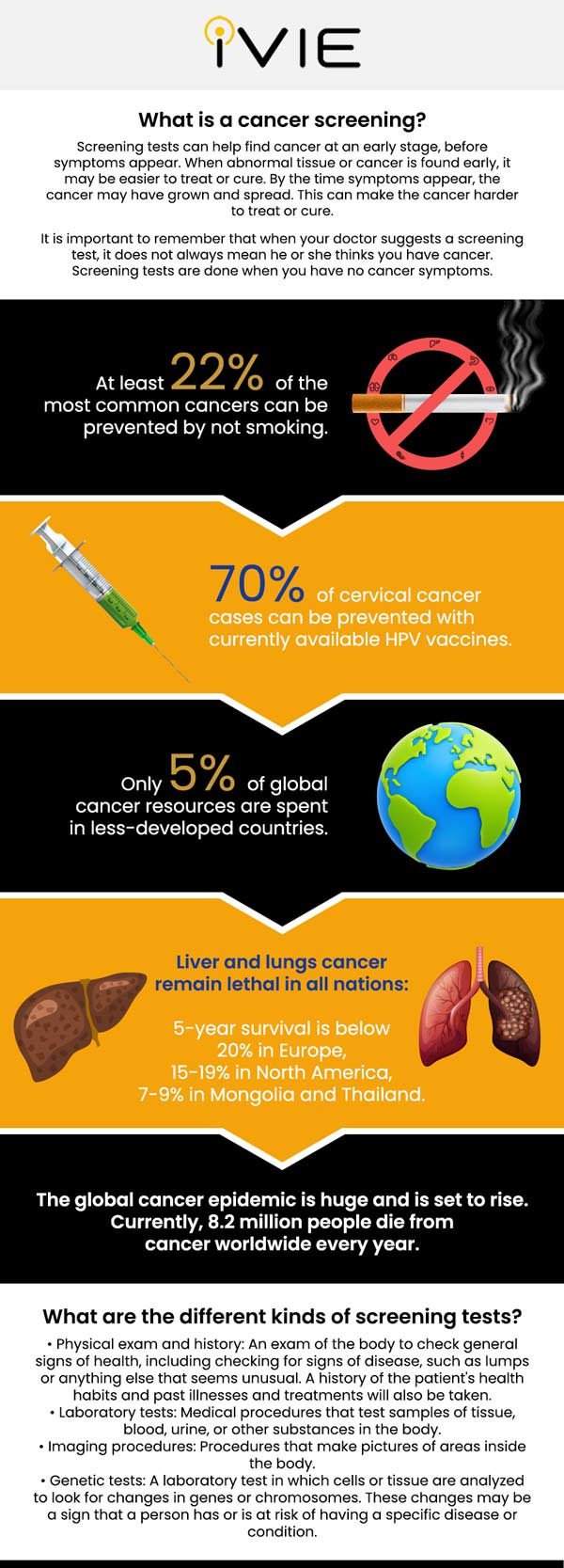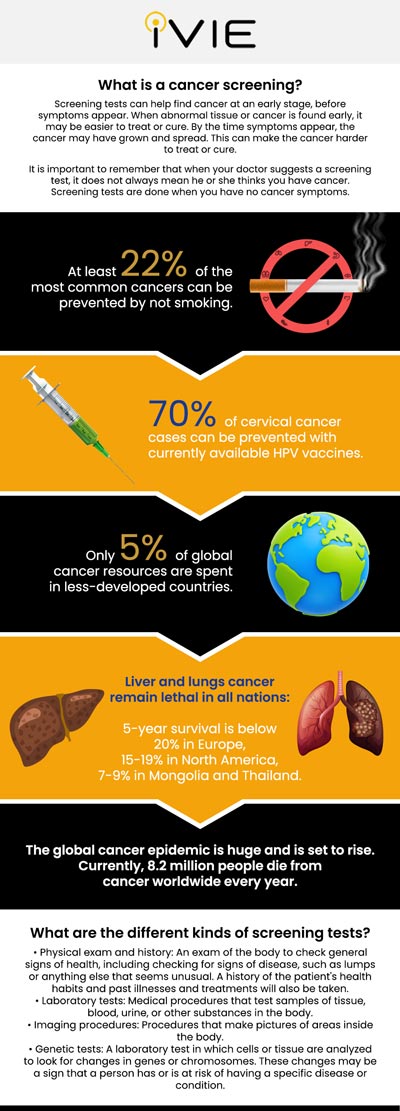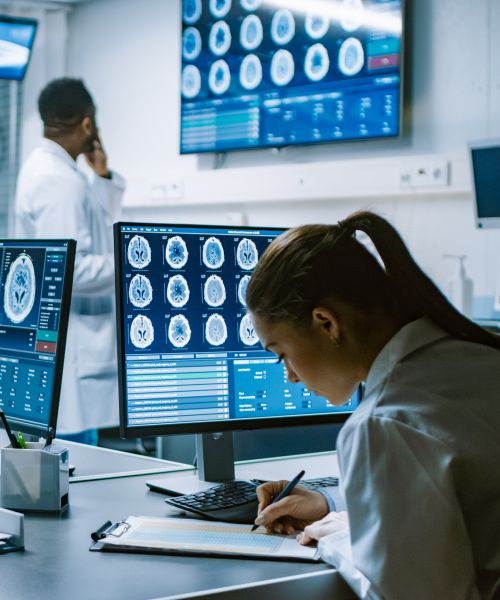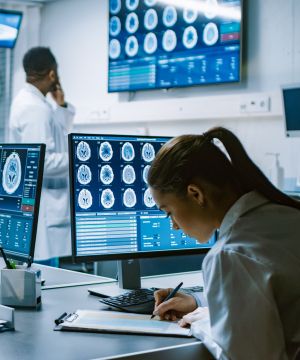Why Keeping Up With Your Cancer Screening is Important
Keeping up with your cancer screening is crucial for early detection, as it significantly increases the chances of successful treatment. Regular screenings help identify potential cancers before symptoms develop, allowing for timely intervention and better health outcomes. By staying on top of recommended screenings, you can reduce the risk of late-stage diagnosis and improve your overall prognosis for a healthier future. Meet Dr. Kourosh Naini and get your cancer screening at iVIE. For more information, contact us or book an appointment online. We are located at 11600 Washington Pl Suite 104A, Culver City, CA 90066.




Table of Contents:
When should you get checked for cancer?
What are the benefits of early cancer screening?
How does screening reduce cancer risk?
Should you get a cancer screening every year?
The ideal age to start going in for cancer screenings depends on your risk factors and the type of cancer being screened for. According to the American Cancer Society, the following screenings are recommended for each age group:
• 21 to 29 – Young adults are typically not recommended to undergo screenings unless they have specific risk factors, such as a family history of colon cancer. Women should perform regular breast self-exams and report any abnormalities to their doctor. Cervical cancer testing is recommended beginning at 25.
• 30 to 39 – Women should continue with breast self-exams as well as start to consider breast cancer screenings if they are at higher risk. Cervical cancer testing is recommended every three to five years. This is also a good age to discuss any potential risk factors that may require earlier screenings with your healthcare provider.
• 40 to 49 – Starting at age 45, women should undergo breast cancer screening with mammograms every year. It’s also recommended to start screening for colon cancer at age 45, regardless of gender. Men with a higher risk of prostate cancer can begin screenings at age 45.
• 50 to 64 – In this age group, it’s essential to stay consistent with regular breast, colon, and cervical cancer screenings. Additionally, people 50 to 80 can begin lung cancer screenings if they have a history of smoking.
• 65 and older – For people 65 and older, prostate, cervical, breast, lung, and colon cancer screenings are recommended.
Early cancer screening is a crucial preventive health measure with multiple benefits that contribute to enhanced health outcomes and quality of life. Cancer screenings are used to detect the condition at an early and treatable stage before it spreads to the rest of the body. This allows for more effective symptom management and lessens the likelihood of severe complications that can arise from more advanced cancer treatments.
Some screenings not only detect cancers but can also prevent them by identifying precancerous cells before they develop into cancer. If you have certain risk factors, such as a family history of cancer, it’s important to speak to your healthcare provider to understand when you should start receiving cancer screenings.
Cancer screenings are used to detect cancer at a treatable stage before it enters a more serious or life-threatening stage. Certain screenings are used not only for detecting cancer but also for spotting precancerous cells. For example, a Pap smear is used to identify abnormal cells in the cervix before they turn into cervical cancer. Finding these cells and removing them can prevent cervical cancer altogether.
Regular screenings are incredibly important, as they aim to catch cancer at a stage in which measures can be taken to halt the progression of the disease before it takes an immense toll on the patient’s health. In summary, screening is an important preventive measure that not only detects cancerous cells early but also increases the chances of identifying precancers.
Whether you should receive a cancer screening annually depends on your age, your risk factors, and the recommendations of your healthcare provider. As you age, the likelihood of developing certain types of cancer increases, which warrants more frequent screenings.
If you are 45 years of age or older, regular cancer screenings are recommended. For example, the American Cancer Society advises that women should receive breast cancer screenings every one to two years after they reach the age of 45. In addition, if you have certain risk factors, such as a history of smoking or a family history of cancer, your doctor will recommend more frequent cancer screenings.
It’s essential to follow the advice of your healthcare provider, who will consider your overall health, risk factors, and the latest medical guidelines to determine the optimal screening frequency for you. If you are looking for a private screening center in Culver City, Los Angeles, visit iVIE for high-quality care and service. Our team offers comprehensive screening services, including cancer, dementia, and aneurysm screenings. For more information, contact us or book an appointment online. We are located at 11600 Washington Pl Suite 104A, Culver City, CA 90066. We serve patients from Culver City Los Angeles CA, Downtown LA, Beverly Hills CA, Marina del Rey CA, Venice CA, Santa Monica CA, and surrounding areas.


Additional Services You May Need
▸ Dementia Screening
▸ Aneurysm Screening
▸ Spine MRI
▸ Whole Body MRI Screening
▸ MRI Brain Screening
▸ Brain PET
▸ Work/Sport Spine Injury Diagnosis
▸ Work/Sport Brain Injury Diagnosis
▸ Whole Body PET For Cancer
▸ MRA Brain Screening


